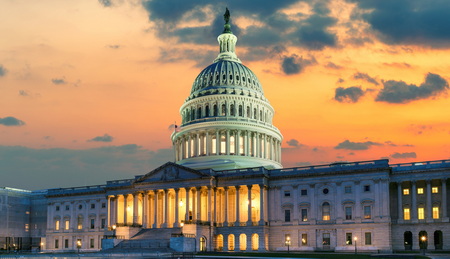Recommendations on how to encourage a national recovery from the economic effects of the pandemic – and improve access to Federal Reserve credit facilities for businesses such as manufacturing, retail, restaurants, real estate owners, and other asset-based borrowers – was the focus of testimony by Roundtable President & CEO Jeffrey DeBoer (above) on Sept. 9 before the Senate Banking, Housing and Urban Affairs Committee. (International Council of Shopping Centers news release)
The Roundtable’s written statement and oral presentation also provided the commercial real estate industry’s shared recommendations on how to provide critical federal assistance to the U.S. workforce, renter households, and business tenants to help them weather the COVID-19 crisis. (Hearing video and witness statements)
- The Senate hearing focused on the effectiveness of the Federal Reserve’s Main Street Lending Program (MSLP) – a $600 billion loan facility established in March as part of the Coronavirus Aid, Relief and Economic Security (CARES) Act to assist small and mid-sized businesses weather the economic fallout from the pandemic. (CQ News, Sept. 9)
- Chairman Mike Crapo (R-ID), Ranking Member Sherrod Brown (D-OH) and other Banking Committee Members heard testimony from DeBoer; Hal Scott, President of the Committee on Capital Markets Regulation; and William Spriggs, Professor of Economics, Howard University and Chief Economist, AFL-CIO. (Witnesses written testimony)
- Chairman Crapo (photo below) noted in his opening statement that the hearing would provide an update on “why the (commercial real estate) CRE market lacks access to needed support, including through the Main Street Program; and recommendations for options to get support to commercial real estate.” (Sen. Crapo’s Opening Statement, Sept. 9)
- DeBoer emphasized the goal of the MSLP is to provide capital to mid-sized businesses that are disproportionally owned by minorities, women and veterans, who are unable to obtain capital due to COVID-related economic problems. (Law360, Sept. 9)
- The Main Street program is not working, DeBoer testified, because there is little incentive for banks to make the loans – and the program’s eligibility, affiliation and underwriting rules are not designed to meet the needs of the businesses in need.
- “The result: countless mid-sized retail businesses, restaurants, hotels, commercial and multifamily building owners are moving closer to shutting their doors forever,” DeBoer stated. (Roundtable Oral Comments)
- DeBoer recommended that to incentivize banks to participate on a larger scale, the Fed should purchase 100 percent of a Main Street loan, instead of the current 95% limit.
- He also encouraged administrative actions to expand the MSLP’s eligibility rules “… to stabilize the weakening condition of many businesses, particularly real estate owners whose businesses support millions of jobs nationwide and whose health is directly related to the health of local communities.” (Washington Post, Sept. 9)
- “The recommendations that I have made on the Main Street Lending Program … really require no additional funds from the federal government,” DeBoer said. “They are administrative. They could be done tomorrow by the Treasury and the Fed if they wanted to.”
- Sen. Chris Van Hollen (D-MD) commented, “I wish there was a broader recognition that getting funds into the hands tenants to pay their landlord on the residential side and also on the commercial side is something that would be very important at this time.” (American Banker, Sept. 9)
- During Q&A with several committee members, DeBoer also addressed the importance of preserving the “rent obligation chain” – the stream of tenant rent revenues that travel through the financial system to support business workers, local government services and mortgage markets, safeguarding billions in Americans’ pension and retirement savings invested in real estate assets. (Video of DeBoer’s Testimony and Q&A with Senators)
- Committee Chairman Crapo on July 31 sent a letter to Secretary Mnuchin and Chairman Powell urging them to quickly expand the Main Street Program by setting up an asset-based lending facility, and to address commercial real estate either through access to the Main Street Program or in a separate facility.” (Roundtable Weekly, August 14)
DeBoer’s testimony, the Fed’s efforts and prospects for congressional action regarding the economic repercussions of the coronavirus will be a focus of discussion during The Roundtable’s September 22 Virtual Fall Meeting. (Video of DeBoer’s Testimony and Q&A with Senators)
# # #








